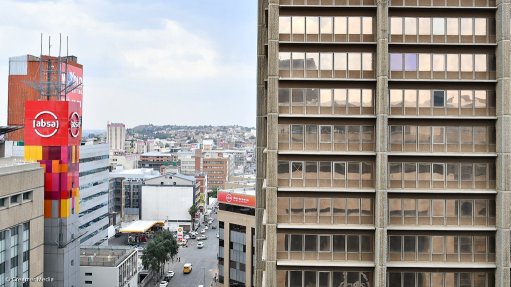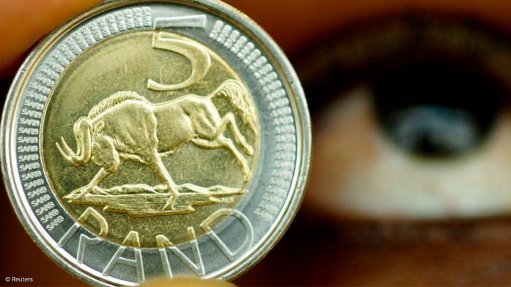Côte d’Ivoire’s ballot ballet
Côte d’Ivoire’s political scene is heating up ahead of Presidential elections slated for October. The country’s courts have excluded three of the main opposition candidates amid rumours that President Alassane Ouattara is likely to use a major political rally on June 21 to announce his candidacy for a constitutionally dubious fourth term in office.
Tensions are particularly high because, for the first time in a generation, the party of founding President Félix Houphouët-Boigny, the Democratic Party of Côte d’Ivoire (PDCI), has elected as its head a credible candidate who could challenge Ouattara’s claim that his technocratic background makes him the natural continuity candidate. Houphouët-Boigny brought Ouattara back from the International Monetary Fund (IMF), where he was the deputy MD, to become Côte d’Ivoire’s first Prime Minister in 1990 – a post created for him as Côte d’Ivoire sought to move away from a one-party State to a pluralist democracy. Prior to his time at the IMF, Ouattara served as governor of the regional central bank.
Decades on, an equally urbane, internationally experienced technocrat and banker, Tidjane Thiam, has returned to resurrect the PDCI’s fortunes and to present a serious challenge to Ouattara’s candidacy, perhaps even securing Houphouët-Boigny’s legacy. Under Houphouët-Boigny’s rule, Côte d’Ivoire was famed for its political stability, consistently high economic growth, dominance of the global cocoa market and steadfast closeness to its former coloniser, France. Thiam’s largely illustrious career in financial services included being a partner at consulting firm McKinsey, CEO of UK-headquartered Prudential and CEO of Credit Suisse. The latter ended in a scandal when he was accused of ordering surveillance on a fellow senior banker and neighbour. He was cleared of doing so, but chose to resign from the Swiss bank.
The cosseted life of a senior private-sector banker may have left Thiam unprepared for the rough and tumble of West Africa’s political scene. On April 22, judge Aminata Touré, president of the Tribunal de Première Instance (lower court), ordered the Independent Commission to remove Thiam from the electoral roll. The reason was that at the time of his inclusion on the electoral roll – a prerequisite for anyone presenting as a candidate in the Presidential elections – Thiam still held French nationality, which made him ineligible to be on the electoral roll and so present his candidacy. Thiam was elected PDCI president in December 2023, but his French nationality was not acknowledged as withdrawn until March 20. Thiam described the court’s decision as “democratic vandalism” designed to “disenfranchise millions of voters” and accused Ouattara’s Rally for Houphouëtists for Democracy and Peace (RHDP) of using the courts to eliminate its most serious rival. Abidjan-based analysts say political pressure was likely put on the lower court and the electoral commission to exclude Thiam, describing as “absurd” that a lower court rather than the Constitutional Council dealt with the matter, leaving no room for an appeal. Either way, the final electoral roll published on June 4 effectively de-barred Thiam from running.
The electoral commission has also excluded most leaders of the remaining opposition parties with any significant following. Rebel leader and ex-Prime Minister Guillaume Soro’s party is banned. Soro is reportedly living in exile, possibly as the guest of Ibrahim Traoré in neighbouring Burkina Faso. Former Youth Minister Charles Blé Goudé’s party is also excluded, as is former President Laurent Gbagbo. Local sources say the reason was Gbagbo’s historic convictions for raiding the country’s central bank reserves while in office. Most opposition parties claim the electoral commission is an instrument of the RHDP – a tool for Ouattara to ensure he wins in October. They say it needs to be reformed and reconstituted. Gbagbo’s party has announced it is leaving the organisation – a move that was expected but which adds to the sense of an emerging political crisis. Dissatisfaction with the electoral commission was reportedly the cause of 2020 post-election violence.
What makes excluding these opposition leaders risky is that most – except Thiam – were belligerents in almost a decade of civil war that reversed the stability and strong economic growth that Houphouët-Boigny established. The causes of two bouts of civil war were the same – acrimony over who should succeed Houphouët-Boigny: Ouattara or the then PDCI leader, the late Henry Konan Bedié. Birthright and nationality came into play then, too. Bedié claimed Ouattara was Burkinabe and not Ivoirian. Ouattara – who claimed to be Houphouët-Boigny’s chosen successor – was excluded. The PDCI exploited the concept of Ivoirité, leading to xenophobic tensions, close to a decade of civil war, and economic decline.
Gbagbo’s presence causes other security concerns. The only peaceful national election in Côte d’Ivoire took place in 2015, which, according to an observer of Ivorian politics, was peaceful only because Gbagbo was absent from the country. Gbagbo was extradited to the International Criminal Court at The Hague in November 2011, where he was charged with four counts of crimes against humanity. Even in the very early stages of this election, Gbagbo is urging his followers to “be prepared” and “to take to the streets”.
Meanwhile, Ouattara’s RHDP is planning a major campaign event on June 21 at one of Abidjan’s main venues, the Alassane Ouattara Stadium, where it is expected the party faithful will call on Ouattara to stand again. Ouattara claims he is eligible to stand for a fourth consecutive five-year term because this will be his second and final term under a new Constitution he promulgated in 2018.
While Côte d’Ivoire has rebuilt economic growth under Ouattara’s capable hands, the fraught elections and Presidential succession remain the main political and security threat to its stability. Of most concern to businesses operating in the country is that the border between Côte d’Ivoire, Mali and Burkina Faso now serves as a dividing line between two geo-strategic blocks, one broadly Western led and the other Russia led. This has implications for business, trade, security, cross- border crime and growing terrorism threats from the Sahel. While Côte d’Ivoire maintains close security links to the Western bloc, hosting the US Flintlock exercise improving the region’s counterterrorism capabilities, the belligerents – excluded from the political process – have extended overtures to the Russia-backed juntas of the neighbouring Alliance des États du Sahel (AES) – Mali, Burkina Faso and Niger. Gbagbo has said he would ‘normalise’ relations between Côte d’Ivoire and AES – all now hostile to Côte d’Ivoire and Ouattara.
Article Enquiry
Email Article
Save Article
Feedback
To advertise email advertising@creamermedia.co.za or click here
Press Office
Announcements
What's On
Subscribe to improve your user experience...
Option 1 (equivalent of R125 a month):
Receive a weekly copy of Creamer Media's Engineering News & Mining Weekly magazine
(print copy for those in South Africa and e-magazine for those outside of South Africa)
Receive daily email newsletters
Access to full search results
Access archive of magazine back copies
Access to Projects in Progress
Access to ONE Research Report of your choice in PDF format
Option 2 (equivalent of R375 a month):
All benefits from Option 1
PLUS
Access to Creamer Media's Research Channel Africa for ALL Research Reports, in PDF format, on various industrial and mining sectors
including Electricity; Water; Energy Transition; Hydrogen; Roads, Rail and Ports; Coal; Gold; Platinum; Battery Metals; etc.
Already a subscriber?
Forgotten your password?
Receive weekly copy of Creamer Media's Engineering News & Mining Weekly magazine (print copy for those in South Africa and e-magazine for those outside of South Africa)
➕
Recieve daily email newsletters
➕
Access to full search results
➕
Access archive of magazine back copies
➕
Access to Projects in Progress
➕
Access to ONE Research Report of your choice in PDF format
RESEARCH CHANNEL AFRICA
R4500 (equivalent of R375 a month)
SUBSCRIBEAll benefits from Option 1
➕
Access to Creamer Media's Research Channel Africa for ALL Research Reports on various industrial and mining sectors, in PDF format, including on:
Electricity
➕
Water
➕
Energy Transition
➕
Hydrogen
➕
Roads, Rail and Ports
➕
Coal
➕
Gold
➕
Platinum
➕
Battery Metals
➕
etc.
Receive all benefits from Option 1 or Option 2 delivered to numerous people at your company
➕
Multiple User names and Passwords for simultaneous log-ins
➕
Intranet integration access to all in your organisation


















